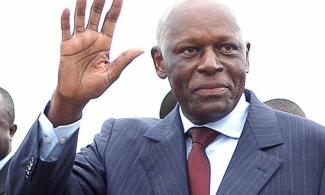
In a recent report, Amnesty International noted that even as dignitaries from across Africa and the world fly to the nation’s capital of Luanda, 16 Angolan activists currently languish in jail. The country has a poor human rights record, opponents of the MPLA-led government face torture, extra-judicial killing, and arbitrary arrest.
This Tuesday and Wednesday Angolans will celebrate the 40th anniversary of their independence.

The southern African nation gained independence from Portugal in 1975 following a protracted and violent armed struggle.
Almost immediately upon gaining independence, Angola became embroiled in a civil war lasting for 27 years. The long conflict drew in the involvement of Apartheid-era South Africa, Cuba, and the United States, and several other states at various points.
The celebrations will be presided over by President José Eduardo dos Santos, who has ruled the country for 36 years under the banner of the People’s Movement for the Liberation of Angola (MPLA).
In a recent report, Amnesty International noted that even as dignitaries from across Africa and the world fly to the nation’s capital of Luanda, 16 Angolan activists currently languish in jail. The country has a poor human rights record, opponents of the MPLA-led government face torture, extra-judicial killing, and arbitrary arrest.
According to Muleya Mwananyanda, Amnesty International’s Deputy Director for Southern Africa, “the human rights situation in Angola is in serious decline. Citizens’ right to freedom of expression and peaceful assembly has been taken away by a state determined to crush dissent. There is no independence without freedom.”
Within the last year alone, in what Jeff Smith from the Robert F. Kennedy Center for Human Rights described as a “thunderous nationwide crackdown,” numerous journalists and activists have been arrested or detained by Angolan authorities. On March 14th, human rights activist José Marcos Mavungo was arrested for protesting bad governance in the oil producing region of Cabinda. Mr. Mavungo was subsequently sentenced to six years in prison following his conviction for fomenting rebellion.
16 Angolan activists are still awaiting their hearing following their arrest in June. One of the detainees, Luaty Beirão, went on a 36-day hunger strike to protest their continued detention.
Parliamentary elections are scheduled for August of 2016, however, few observers foresee the MPLA losing its grip on power.